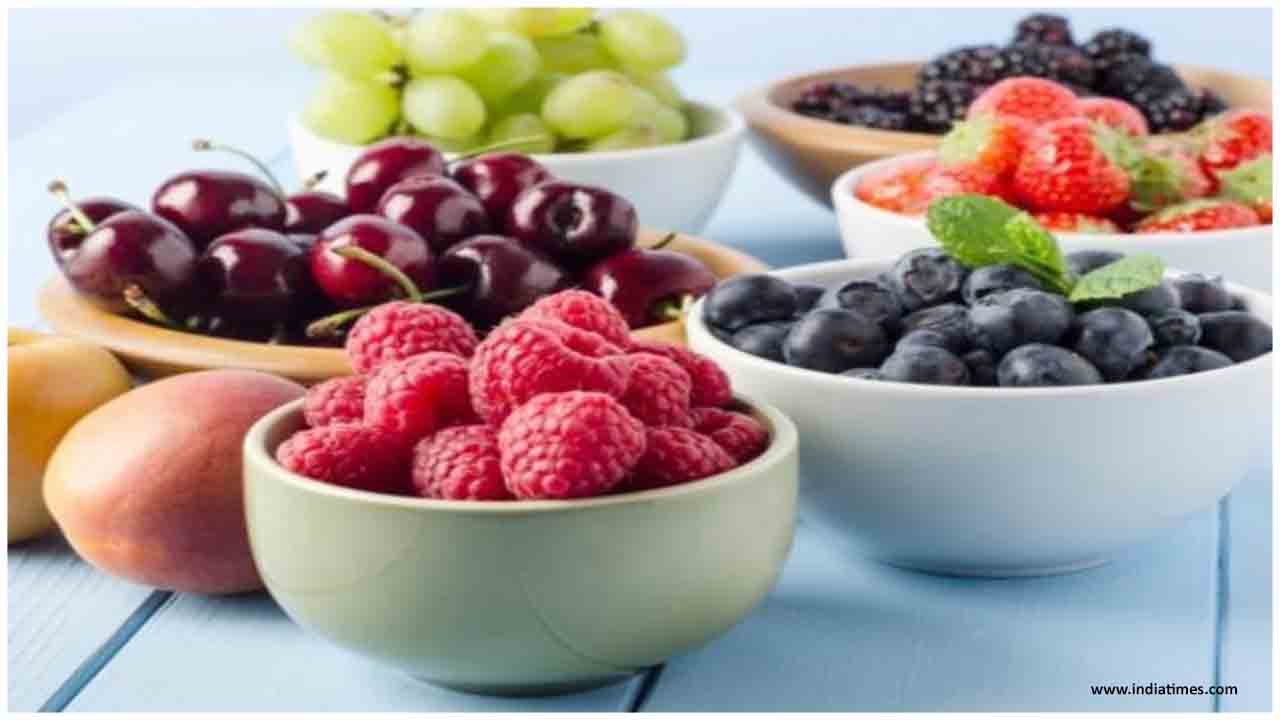There are some foods that naturally have compounds that are potential cancer-fighting in nature. As such no food completely protects against cancer but studies have shown that incorporating these foods in the diet will definitely help in decreasing the future cancer risk. Let’s see what this list comprises of:
Apples
Apples have polyphenols which are plant-based compounds and a special antioxidant called as quercetin which is responsible for prevention against inflammation, cardiovascular disease and infections. Thus the age old saying ‘An apple a day keeps the doctor away’ is well explained.
The polyphenol phloretin inhibits a protein called glucose transporter 2 (GLUT2) thus playing an important role in advanced-stage cell growth in certain types of cancer. Another study done in 2018 and published in the Journal of Food and Drug Analysis suggest that phloretin significantly inhibits the growth of breast cancer cells.
Berries
Berries like blueberries, blackberries, strawberries, mulberry, etc are super rich in vitamins, minerals and fibre. A lot of researches have been done on berries for their relative health-related and cancer-fighting properties. They have high antioxidant content, thus, studies have shown them to lower the biomarker for certain cancers if incorporated in the diet on a regular basis.
Cruciferous veggies
These are your cauliflower, broccoli, kale which contain nutrients such as Vitamin K, Vitamin C, etc. They also contain sulforaphane which is an anticancer compound. A study showed that sulforaphane inhibits cancer cell growth thus stimulating cell death of colon cancer. Another study done showed that sulforaphane when consumed in combination with genistein - a compound in soybeans, significantly inhibited breast cancer tumour size and development. Sulforaphane also inhibits histone deacetylase, an enzyme that is linked to cancer development. A review study recommends 3 – 5 servings of this vegetable group every week for best cancer-fighting effect.
Carrots
Whenever we talk about carrot, the first thing that comes to our head is the eye protection. But carrot does more than just that!
Carrots are high in Beta-carotene and other essential nutrients like vitamin K, Vitamin A and antioxidants. A review study shows that there are link between beta carotene and the reduction in the risk of breast and prostate cancer. Another studies showed that consuming more carrots lead to 26 percent lower risk of developing cancer of the stomach.
Oily or Fatty fish
Fatty fishes such as mackerel, salmon, tuna are rich in omega-3 fatty acids, potassium and B vitamins. A study found that there was a 53 percent lower risk of colorectal cancer when the people consumed a diet high in freshwater fish. Another study suggests that consuming fish oil at least 4 times a week after middle-age significantly lowers the risk of prostate cancer, another study showed that consumption of fish oil, led to 63 percent reduction in the development of colon cancer.
Walnuts
All nuts have cancer prevention property says American Institute for Cancer Research but more researches have been done on walnuts than on any other nuts. It has been studied that walnuts play an important role in preventing breast cancer as they contain a substance called pedunculagin, which the body metabolizes into urolithins, which basically are compounds that bind to estrogen receptors thus helping in breast cancer prevention.
In a study done on mice, it was observed that, mice who received whole walnut and walnut oil showed to have higher levels of tumour suppressing genes when compared to vegetable oil.
Pulses and Legumes
Legumes, such as beans, peas, and lentils, are high in fiber, which may help lower a person’s risk of developing cancer. A review study showed an association between more consumption of legumes to lower risk of colorectal cancer. Another study showed a relationship between intake of beans and lower risk of breast cancer. According to the studies people should have a high fiber diet thus putting them at 20 per cent lesser risk of developing breast cancer.
Supplementation
A lot of people might already be consuming the foods as mentioned above. But there are not some who do not nor do want to make the changes in their routine and lifestyle. In this scenario, there are plenty of supplements and medications available that contain anti-cancer compounds. Such as supplementations of vitamins A, C, and E are notable for their anticancer properties and are available easily.
Having said this, always speak to a medical professional before starting supplementation.
More research on preventing cancer through diet needs to be done further in humans as majorly the studies carried out are done on mice or cells.
Nevertheless, eating a balanced diet with fresh vegetables and fruits will benefit each individual in the long run.

 A study recommends 3 – 5 servings of cruciferous vegetables every week for best cancer fighting effect.
A study recommends 3 – 5 servings of cruciferous vegetables every week for best cancer fighting effect. 









.jpeg)







.jpeg)

.jpg)










